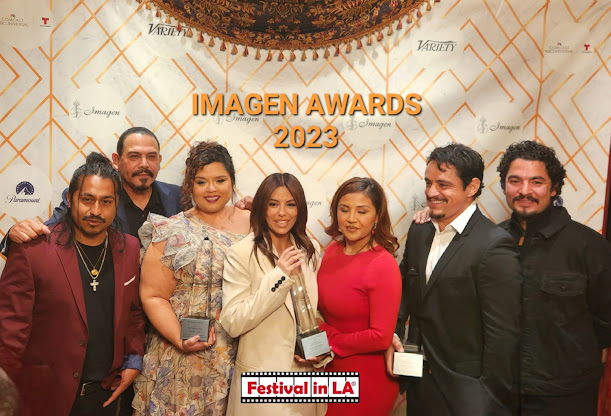A coming-of-age story filmed with a rotoscope with real actors. The animation representing the Phillippines at the 96th Academy Awards for Best International Feature Film is surprisingly compelling and engaging.
Eric is exquisitely played by Gio Gahol (“Sila- sila,” “A Tale of Filipino Violence,” “Sana dati”). He is an outsider with psychological problems who engages the audience right from the beginning with emotional elements such as compassion, sadness, and wondering about the future.
Eric is a mouthless animator who, when he suffers a mental breakdown, loses other parts of his body. A similar situation is presented in the nominated French traditional animation “I Lost My Body.”
The profound symbolism of losing his mouth means that he cannot speak about what he suffered years back when he was too little to defend himself.
Being a quiet boy made him the object of bullying at school. Now, he is a very introverted kind of guy.
His busy mother, Rosalinda, is exceptionally well played by Academy-Award nominee Dolly De Leon (“Triangle of Sadness”). She is unaware of anything happening with Eric’s past, but she accepts her son’s sexual preference with love and understanding. She knows her son has become mute but does not know why.
They communicate by video chat using Eric’s whiteboard. Over the phone, she asks him to check out the situation regarding her missing brother. When Eric enters his uncle’s house, the terrible odor and all the flies in there worsen his nightmares. At that cathartic moment, Carlo’s profound love cannot help stop the alien invasion and destruction inside Eric’s brain. In the devastating process, only kindness and caring can be used as a catharsis to relieve so much pain that a young boy carries inside.
The Filipino-Ilocano production is directed by an Award-winning filmmaker, Carl Joseph Papa (“The Unforgetting,” “Paglisa”), who wanted to tell a very personal story based on situations he lived and interviews he attempted to bring out of the shadows the children who had been sexually abused in the archipelago.
 |
| Award-winning filmmaker, Carl Joseph Papa |
When Eric was a child, he was more talkative and had a mouth. Now that he is a grown-up, he is nostalgic and timid.
In the US, Disney’s “Fantasia” and “Anastasia” were made with the rotoscope post-production technique, which is to record the live-action actors and animate them later.
Using this technique, director Richard Linklater made an existentialist piece called “Waking Life” and, later, the suspenseful thriller “Scanner Darkly” with Keanu Reeves, Winona Rider, and Robert Downey Jr.
Other animation films using the same technique are the Polish work “Loving Vincent” and this year’s Rotoscope-Impressionism Oscar entry “The Peasants,” which were made with a similar laborious post-production process.
Winner of the Balanghai Trophy at Cinemalaya Independent Film Festival and nominated for Best Foreign Film FIPRESCI Prize at the Palm Springs Film Festival 2024, “The Missing” is the official Oscar entry from The Philippines in the Best International Feature Film category for the 96th Academy Awards.
“The Missing” is a profound and transcendental Filipino jewel waiting to be discovered by a large audience worldwide.















